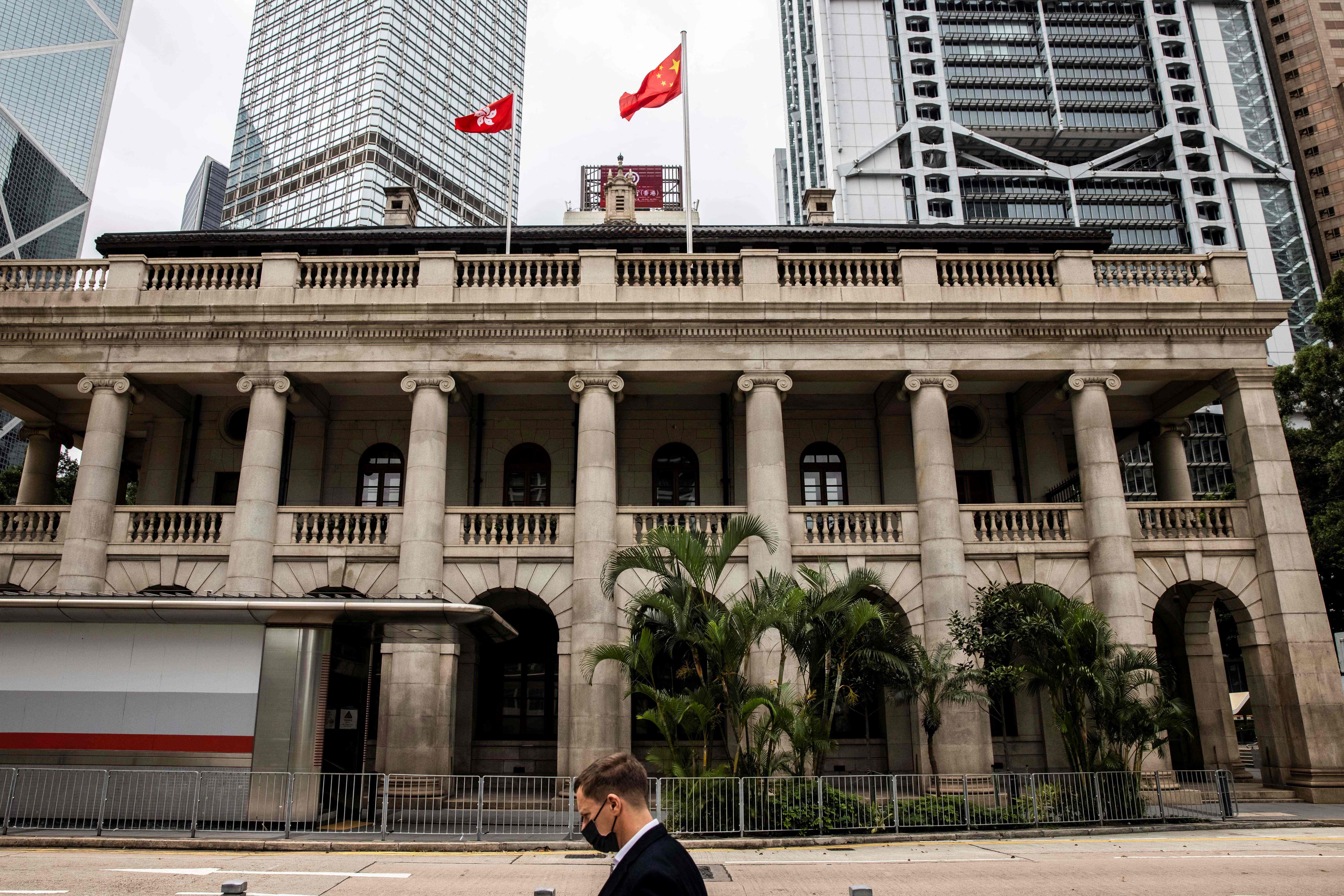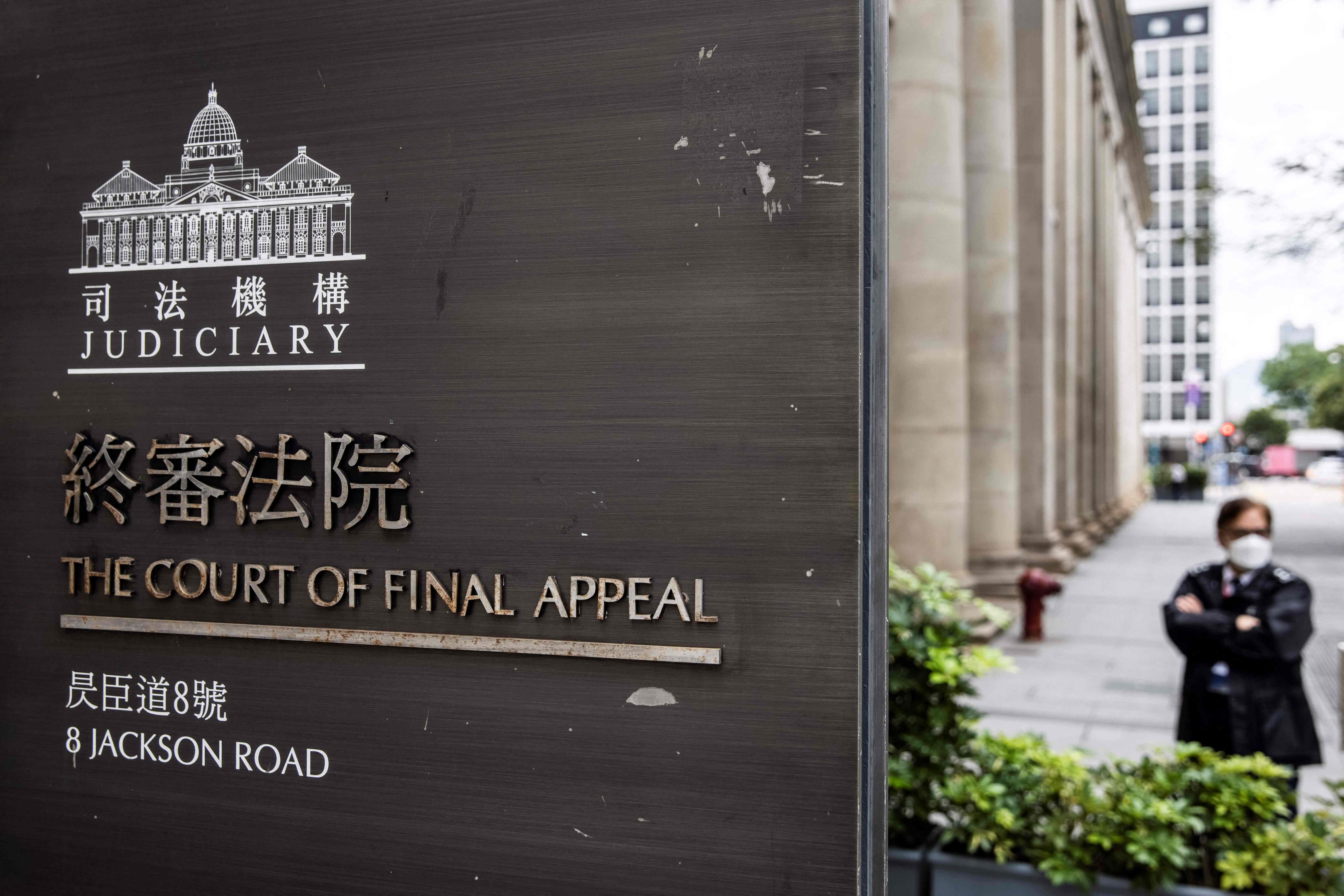Hong Kong leader says British judges’ resignation ‘politically motivated’
Carrie Lam claims ‘political pressure’ was put on foreign judges to step down

The resignation of two senior British judges was politically motivated, Hong Kong leader Carrie Lam said on Thursday, adding that she was confident all levels of the judiciary in the Asian financial hub would be free from political interference.
The judges resigned from Hong Kong’s highest court on Wednesday because of a sweeping national security law imposed by China in 2020 that cracks down on dissent in the former British colony.
“The resignations are politically motivated,” Ms Lam told a daily news briefing.
“They have been put under political pressure and that is a kind of political manipulation,” she said, without elaborating on the pressure.
British judges have long served among the foreign jurists appointed to the Hong Kong Court of Final Appeal (CFA), an arrangement to maintain confidence in a legal system widely seen as the bedrock of the city’s social and commercial freedoms.
On Wednesday, Robert Reed, the head of Britain’s top judicial body, said he and colleague Patrick Hodge would relinquish with immediate effect their roles as non-permanent judges on the CFA.
Lam said she regretted their decision, adding that foreign judges were much valued to help safeguard judicial independence.

“I remain very confident that we still have very fine judges in the judiciary, both local and from overseas. Hong Kong will continue to benefit significantly,” she said.
Neither Mr Reed nor Mr Hodge could immediately be reached for comment.
‘Departed from values’
The national security law, which punishes offences like subversion with up to life imprisonment, has drawn widespread criticism from pro-democracy politicians in Hong Kong and from western countries, including the United States and Britain.
Critics say it has been used to curb dissent and various freedoms.
Lam and the Hong Kong government deny that, saying the law, introduced after months of at times violent pro-democracy demonstrations, is necessary to maintain order, preserve the city’s economic success and guard against foreign interference.
Lam pointed out that the law does not prohibit overseas judges from serving and hearing security cases, adding that judges’ independence meant that foreign judges, either by their oath or judgements, in no way endorsed her government.
Reed said earlier that while Hong Kong’s courts were respected for their commitment to the rule of law, judges could not serve in the city “without appearing to endorse an administration which has departed from values of political freedom, and freedom of expression, to which the justices of the Supreme Court are deeply committee”.
Canada’s former top judge, Beverley McLachlin, is set to remain serving on Hong Kong’s Court of Final Appeal, Ms Lam said, citing her as saying her appointment had no connection to the Hong Kong administration.
Retired former Australian chief justice Robert French told Reuters in an email he would be continuing on the bench.
“I believe that the chief justice and resident permanent justices of the [CFA] court are committed to their judicial independence and I support them in that commitment,” he wrote.
Britain, which handed Hong Kong back to China in 1997, says the national security law is a breach of the 1984 Sino-British Joint Declaration that paved the way for the city’s return to China in 1997 under a “one country, two systems” formula.
Many of the city’s democratic campaigners have been arrested, detained or forced into exile, civil society groups have shut down and liberal media outlets forced to close in a security crackdown following the introduction of the law.
Reuters
Join our commenting forum
Join thought-provoking conversations, follow other Independent readers and see their replies
Comments
Bookmark popover
Removed from bookmarks